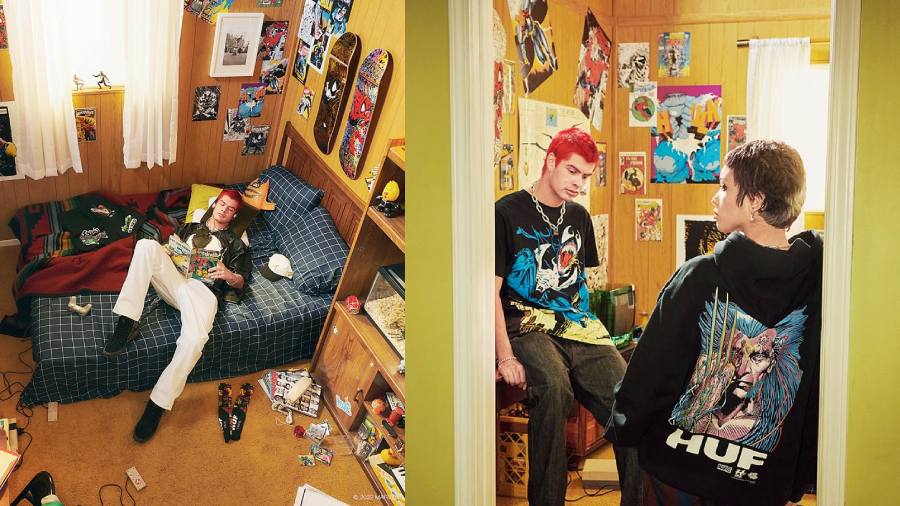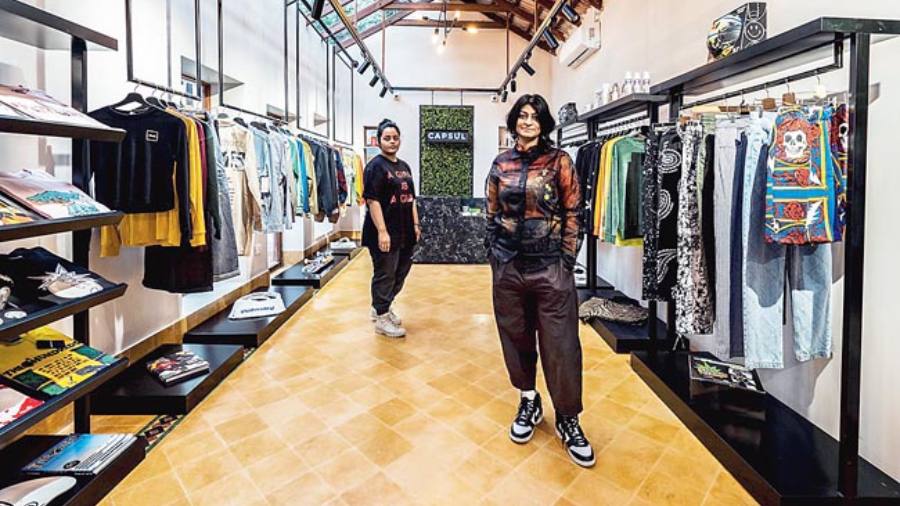Co-founded by Bhavisha Dave and Meenakshi Singh, Capsul is a ‘multi-brand streetwear platform’ with a cool curation. What makes it cooler is that it is women-owned and led. We chatted with Bhavisha and Meenakshi on their initiative, the rise in the popularity of streetwear and icons.
CAPSUL sounds really cool. How old is the platform?
CAPSUL, the platform, is a little over three years old. We piloted CAPSUL in 2018 and spent the next 12 months earning the capital to start the platform by undertaking culture consultancy projects for brands. The online platform — www.shopcapsul.com -— was launched in March 2019 with five brands and approximately 30 styles and that’s how we began our journey of making streetwear accessible to Indians.
Our name CAPSUL is derived from the fashion term “capsule”, which is the creme de la creme items from any drop or the limited-edition items from any fashion collection.
How did both of you meet?
Both of us worked at PUMA, both in India and internationally, for about seven years before and that’s where the idea of CAPSUL was born.
What was the idea? How would you define streetwear?
CAPSUL is India’s first and only multi-brand streetwear platform. CAPSUL is in the business of making streetwear accessible to Indians. Streetwear is the intersection of fashion, art, music and sports and is powered by community. Streetwear doesn’t exist without community and that’s the key differentiator. Streetwear is independent, rebellious and has a distinctive point of view. Streetwear is ahead of the curve and at CAPSUL, we call streetwear the power dressing of the casual-wear world.
Our vision is to be the one-stop-shop for streetwear fashion, content, community and experiences for India. We are the discovery platform for global streetwear brands for Indians and Indian streetwear brands for the world.

How many women work with you? What was the idea behind making it women-led and owned?
Currently including us, there are five other women in our team. Globally, CAPSUL is one of the few women-owned and led businesses in streetwear. This isn’t by orchestration but just happens to be the situation. However, it does allow us to stand out and bring an additional perspective to streetwear and make it more inclusive.
Tell us a bit about your curation.
Our curation is intended to provide supply of streetwear products to shape demand. We curate a mix of brands that come from heritage like Carhartt WIP and The Hundreds as well as exciting young brands that have a unique point of view like Pleasures, Jungles, Market to name some. Our curation is culture first and with the aim to help more people discover these amazing streetwear brands. Since 2021 we have started onboarding Indian brands like Almost Gods, Biksit and Styl-O that have an international and unique tone of voice.

What would you attribute the popularity of streetwear to?
Increased penetration of the Internet and adoption of social media, especially Instagram, has made the world more visually connected. Streetwear is the uniform or the fashion code of Gen Z and millennials the world over and Indian Gen Z and millennials stand shoulder to shoulder with their global counterparts.
The rise in popularity of hip-hop, sports like skateboarding and the many streetwear X gaming collaborations in recent times have also contributed to the popularity of streetwear. Street art too, a key pillar of street culture and hence streetwear, has received its rightful place under the sun. And an increasing want and acceptance of comfortable clothing and footwear has led to an explosion in the streetwear market.
What are the most popular items?
T-shirts and hoodies are the most popular items. We are also seeing an increasing demand for collectibles like Market Basketballs and Be@rbrick vinyl toys.

Who are the icons whose styles you both look up to?
We admire the fits and looks put together by quite a few creators like India based-Manpreet Kaur, Allen Claudius, Arjun Dutta, Dubai-based DJ Sonya, Polish designer Zulu Kuki, Cape Town-based Rusty Beukes, and global trailblazers like Aria Hughes, Aleali May, Yoon Ahn, the founder of AMBUSH. Their style is effortless and they are catalysts in the streetwear movement.
Are you both mostly in street style?
Oh yes! Absolutely. And not just “office” wear but our gym wear and sleepwear for us and our family members are also streetwear!
Which city has made streetwear its own?
More than the city, we believe people make streetwear their own. There are leaders in every city and brands coming out of so many cities in India, not just the top metros. We do see early adoption of streetwear coming from Mumbai and Delhi. However, we are also seeing tight communities building in cities like Chandigarh, Aizawl, Kochi, Surat....
